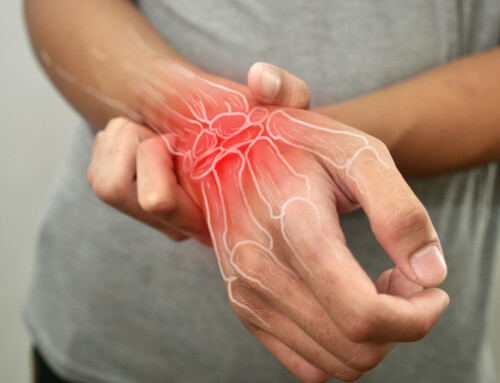By Juliana Geniti, ST
What is Whiplash?
Like a whip, whiplash refers to when the neck is injured from a forceful and rapid back-and-forth jerk. Although it’s typically thought to be an injury from being rear-ended, whiplash can be in any direction. Motor vehicle accidents are commonly the cause for this type of neck injury, but any physical trauma on the body such as forces from a fall or contact sports can cause whiplash.
What are the symptoms of whiplash?
- Neck stiffness and pain that increases with movement
- Limited range of motion in the neck
- Headaches
- Dizziness
- Tenderness or pain in the upper back, shoulders, or arms
- Fatigue
How is whiplash diagnosed?
An examination of your range of motion, reflexes, and motions that recreate pain will help your doctor to determine if you have whiplash. While diagnostic imaging such as X-rays, MRIs, or CT scans can’t determine if you have whiplash, they can help to rule out other causes of your neck pain.
How can PT help with whiplash?
After an injury, your body tries to protect the painful area by tightening the muscles around it. This is known as muscle guarding, and if gone on for too long, your body avoids using the muscles associated with the area of pain even if the original damaged tissue is healed. This can cause limited range of motion and muscle weakness. Physical therapy can help to manage pain, increase range of motion, and strengthen the muscles of the neck, upper back, and shoulder. By stabilizing and strengthening not just the muscles of the neck, but of those surrounding it, you are showing your body that your muscles are strong enough to stabilize the damaged area without the help of muscle guarding.
How long will these symptoms last?
How long someone experiences symptoms associated with a whiplash injury is highly variable, ranging from a few weeks to several months. It is not conclusive what specifically causes some people to have chronic, or long term, pain after a whiplash injury. However, early and intense pain soon after injury is a predictor for a poor outcome after injury.
References:
- Mayo Clinic. Whiplash – Symptoms and causes. Mayo Clinic. Published 2018. https://www.mayoclinic.org/diseases-conditions/whiplash/symptoms-causes/syc-20378921
- Sarrami P, Armstrong E, Naylor JM, Harris IA. Factors predicting outcome in whiplash injury: a systematic meta-review of prognostic factors.J Orthop Traumatol. 2017;18(1):9-16. doi:10.1007/s10195-016-0431-x
- Muscle Guarding & The Pain Cycle. Dr. Martin Schmaltz. Published August 9, 2021. https://drmartinschmaltz.com/muscle-guarding-the-pain-cycle
If you have been diagnosed with whiplash, contact us today via our contact form, or call us directly at our physical therapy clinics in Malta, Saratoga or Queensbury at 518-289-5242 for a personal evaluation, and find out how we can get you feeling better!






